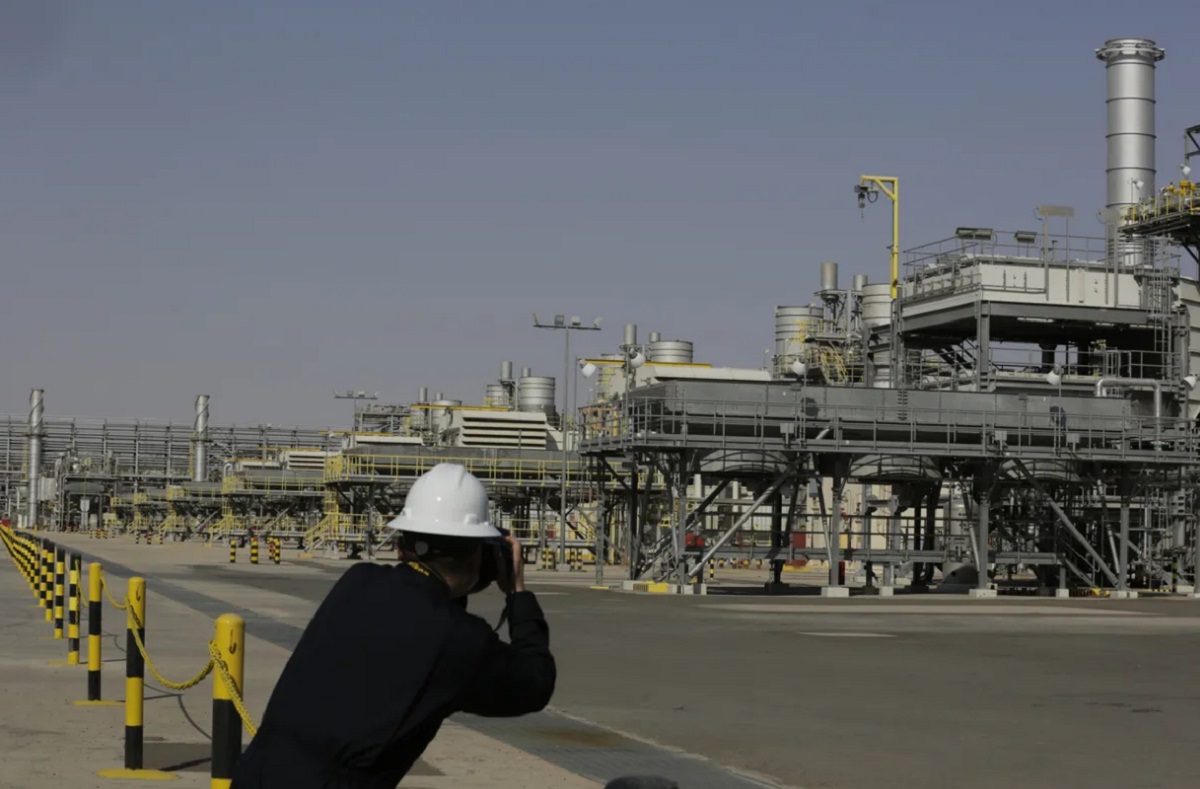Saudi Arabia has announced it will reduce how much oil it sends to the global economy by one million barrels per day (bpd), as the OPEC+ alliance of major oil-producing countries faces flagging oil prices and a looming supply glut.
The kingdom said on Sunday that it would make these production cuts in July to support the sagging cost of crude after two earlier production cuts by OPEC+ members failed to push prices higher.
OPEC+, which groups the Organization of the Petroleum Exporting Countries and allies led by Russia, reached a deal on output policy after seven hours of talks at its headquarters in Vienna and agreed to extend earlier cuts in supply through the end of 2024 by a further total of 1.4 million barrels per day.
“This is a grand day for us, because the quality of the agreement is unprecedented,” Saudi Energy Minister Abdulaziz bin Salman stated in a news conference, adding that the new set of production targets is “much more transparent and much more fair”.
He also added that the cut by Riyadh could be extended beyond July if needed.
However, many of these reductions will not be real as the group lowered the targets for Russia, Nigeria and Angola to bring them into line with their actual current production levels.
In contrast, the United Arab Emirates was allowed to raise output.
OPEC+ pumps around 40 percent of the world’s crude, meaning its policy decisions can have a major impact on oil prices.
It already has in place a cut of 2 million bpd agreed to last year and amounting to 2 percent of global demand.
In April, it agreed to a surprise voluntary cut of 1.6 million bpd that took effect in May until the end of 2023.
However, those cuts gave little lasting boost to oil prices.
International benchmark Brent crude climbed as high as $87 per barrel but has given up its post-cut gains and has been lingering below $75 per barrel in recent days. United States crude has dipped below $70.
The slump in oil prices has helped US drivers fill their tanks more cheaply and given consumers worldwide some relief from inflation.
Falling energy prices also helped inflation in the 20 European countries that use the euro drop to the lowest level since before Russia’s invasion of Ukraine.
That the Saudis felt another cut was necessary underlines the uncertain outlook for demand for fuel in the months ahead.
There are concerns about economic weakness in the US and Europe, while China’s rebound from COVID-19 restrictions has been less robust than many had hoped.
Western nations have accused OPEC of manipulating oil prices and undermining the global economy through high energy costs. The West has also accused OPEC of siding with Russia despite Western sanctions over Moscow’s invasion of Ukraine.
In response, OPEC insiders have said the West’s money-printing over the last decade has driven inflation and forced oil-producing nations to act to maintain the value of their main export.
Asian countries, such as China and India, have bought the greatest share of Russian oil exports and refused to join Western sanctions against Russia.
It’s possible the latest production cut could send oil prices up and with them, petrol prices. But there is uncertainty about when the slow-growing global economy will regain its thirst for fuel for travel and industry.
Saudis need sustained high oil revenue to fund ambitious development projects aimed at diversifying the country’s economy away from oil.
The International Monetary Fund estimates the kingdom needs $80.90 per barrel to meet its envisioned spending commitments, which include a planned $500bn futuristic desert city project called Neom.
While oil producers need revenue to fund their state budgets, they also have to take into account the impact of higher prices on oil-consuming countries.
Oil prices that go too high can fuel inflation, sapping consumer purchasing power and pushing central banks such as the US Federal Reserve towards further interest rate hikes.
Higher rates target inflation but can slow economic growth by making credit harder to get for purchases or business investments.
